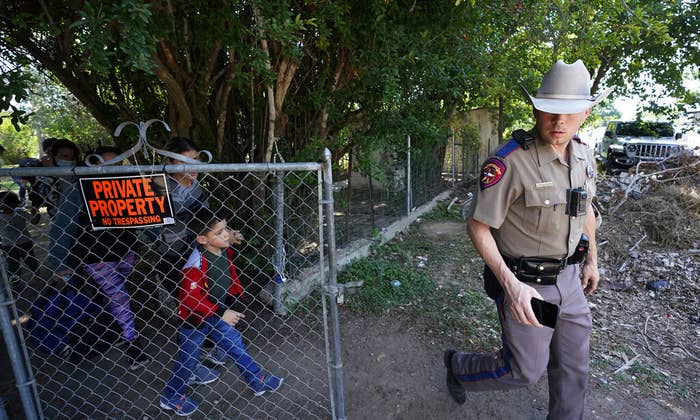
A border operation launched by Texas Gov. Greg Abbott to arrest undocumented immigrants has inadvertently helped asylum-seekers who would have normally been turned away to stay in the US, sometimes outside of detention facilities.
Since Operation Lone Star started in March, state authorities have arrested hundreds of undocumented immigrants on state crimes for trespassing. It was created to combat human trafficking and drug smuggling by "filling the gaps" Abbott said are created when Border Patrol agents are preoccupied with apprehending immigrants. This summer, Abbott directed state troopers and Texas National Guard members to go to the border to arrest immigrants suspected of entering the US without authorization on state charges in an effort to deter others.
But those arrests have led to unintended consequences. Currently, most immigrants at the border are being blocked from accessing the US asylum system since the Biden administration has continued to use a policy invoked by former president Donald Trump, known as Title 42, that cites the pandemic as justification to quickly expel immigrants at the border to Mexico or their home countries. However, some people arrested under Operation Lone Star have not only been able to stay in the US but also file asylum applications.
Texas RioGrande Legal Aid (TRLA), which is providing legal aid to some immigrants swept up in Operation Lone Star, said that of the 120 asylum-seekers it has post-release information about, 115 of them have been able to stay and pursue their cases in the US.
Audrey Mulholland, staff attorney and interim special project director for TRLA's Operation Lone Star Immigration Response, said that had the immigrants been detained by Border Patrol agents instead of state troopers, 43 of them would have been subject to Title 42 and immediately sent back to Mexico or their home countries based on their nationalities. Of those, 38 have been able to seek asylum in the US.
"In the majority of cases, had they been apprehended by [Customs and Border Protection], I think their expulsions would've been likely and indeed some of them had previously been expelled pursuant to Title 42," Mulholland told BuzzFeed News. "Operation Lone Star is ironically allowing some of our clients to access asylum proceedings that Title 42 robbed them of."
Immigrants from Guatemala, El Salvador, Honduras, Mexico, Haiti, Brazil, and Ecuador are currently subjected to Title 42. Depending on their nationality, they can be expelled to Mexico or their home countries.
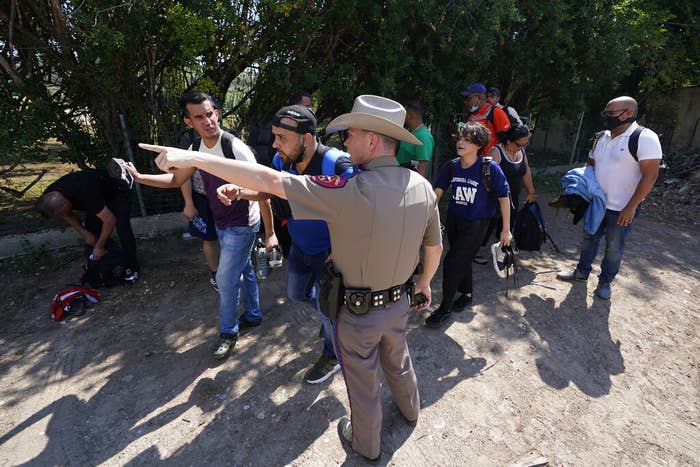
In Mulholland’s experience so far, most immigrants who wind up in state custody after being arrested by Texas troopers or the National Guard are issued an ICE detainer, which gives the immigration enforcement agency 48 hours from when someone is ordered released to pick them up and detain them. In cases where immigrants accept plea agreements, are released on personal recognizance bonds, or pay bonds to be released, ICE kept the detainer in place and would take them to one of its prisons instead of sending them to Customs and Border Protection, where they could then be expelled under Title 42. Without the arrest by state officials, immigrants apprehended by Border Patrol would have been processed by federal authorities carrying out expulsions.
Abbott's office did not respond to a request for comment. But at a press conference on April 1, Abbott said the Biden administration had created an "open season" for human traffickers, drug smugglers, and criminal organizations.
"Because the federal government is failing to act, to respond to these dangers, Texas is stepping up to secure the border and keep our communities safe," Abbott said. "Operation Lone Star was launched for the purpose of filling the gaps left open as Border Patrol officers are busy, occupied, with detaining the large numbers of people who are coming across the border."
The operation’s focus on drug and human smugglers was expanded in July to undocumented immigrants themselves when he authorized state troopers and Texas National Guard members to arrest people suspected of crossing the border without authorization on misdemeanor charges like trespassing.
From March to early November, 1,727 people were arrested for criminal trespassing, according to data obtained by BuzzFeed News through a public records request.
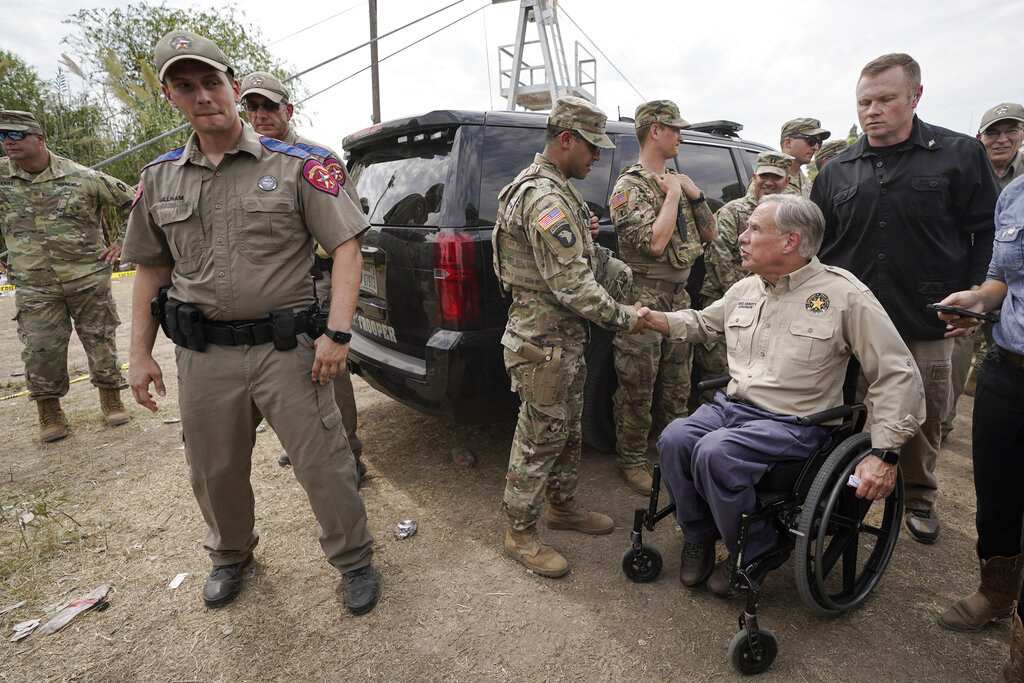
R. Dominguez, a Honduran asylum-seeker who was apprehended this summer near Del Rio by state troopers and members of the National Guard, spent more than two months in a Dilley, Texas, jail after being arrested.
"It was terrible because I had no idea how long I would be in there," said Dominguez, who declined to be identified by his full name fearing it could affect his case. "It was inhumane."
After a few weeks, attorneys with TRLA, who are appointed as public defenders for some immigrants arrested under Operation Lone Star, helped connect Dominguez with legal help to submit an asylum application.
Dominguez was detained by ICE for about three weeks before being released. There were moments in detention when Dominguez wished he had been expelled to Mexico, but now that he is out of detention and living with his family, he said he's one of a lucky few.
"It worked out for me, but I know of so many other people from my country who were deported," Dominguez said. "Still, it was horrible and shocking the way we immigrants were treated through the entire process."
While Operation Lone Star has helped some immigrants, Mulholland, of TRLA, cautioned against seeing it as a win for asylum-seekers because of due process violations and the prolonged detention they endure.
"It's an incredibly abusive program that has created a separate and unequal criminal justice system for immigrants," Mulholland said.
Andani Alcantara Diaz, supervising attorney for removal in Austin for the immigrant advocacy organization RAICES, said detainees describe being woken up at 2 or 3 a.m. to have breakfast, which is sometimes a small piece of bread, then lunch at 10 a.m. and dinner around 4 p.m. Immigrants with diabetes who need to eat at certain times and more regularly to maintain their blood sugar levels aren't able to, Alcantara Diaz said.
"Most of these people have been in custody for months at a time and they're pretty desperate," she said. "It's bad for their mental health and their desire to fight their cases."
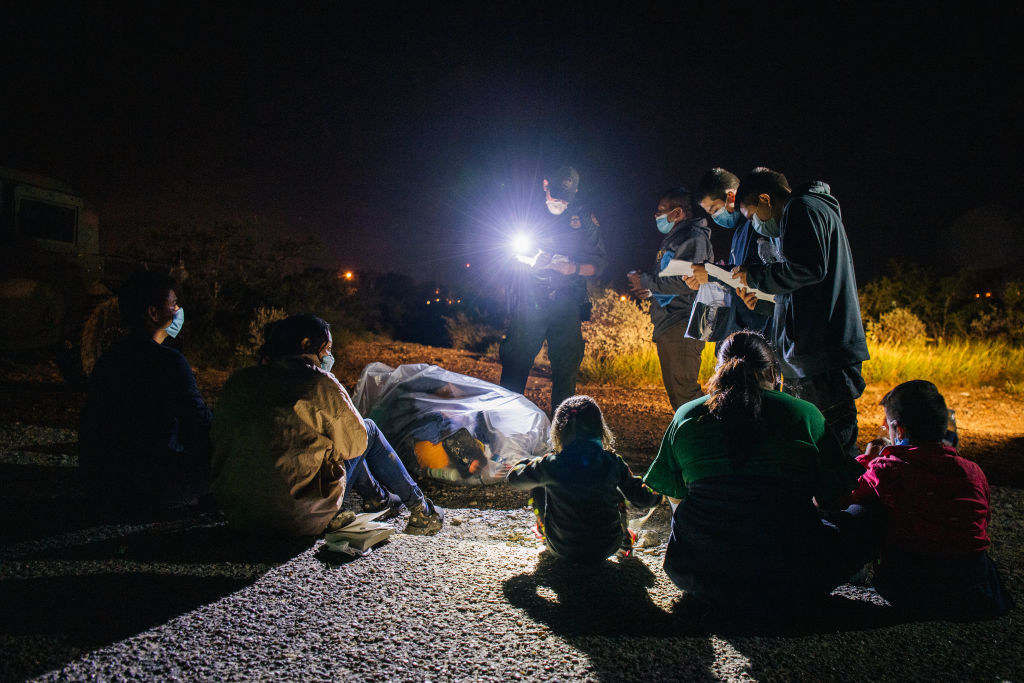
Under Operation Lone Star, immigrants who are arrested are sent to a local jail where they are taken inside trailers and then have bail set by a magistrate judge over Zoom. The following day, they’re bussed more than two hours away to a prison in Dilley, Texas, that’s been converted into a jail for immigrants. There, they typically wait for months before seeing the inside of a courtroom, due in part to the operation overwhelming courts in border cities with misdemeanor cases.
Kristin Etter, an attorney and special project director for Texas RioGrande Legal Aid who is providing legal assistance to immigrants arrested under Operation Lone Star, said her clients spend months, sometimes 80 days, in prison waiting for prosecutors to file charges against them, which goes beyond the time the state can legally hold someone in jail if charges haven't been filed. According to state statutes, someone detained for trespassing, like many of the Operation Lone Star arrestees, should be released 15 or 30 days after being arrested if prosecutors haven't filed charges.
Moreover, Etter said, once charges are filed, clients are still spending 90 days or longer waiting for the court to set a hearing.
Prolonged detention is not the only issue; the Texas Tribune reported that trespassing charges against dozens of immigrants arrested under Operation Lone Star were dropped because court documents filed by Kinney County prosecutors failed to point out what property the men were allegedly trespassing on.
Etter also maintains that some of their clients accused of trespassing weren't actually on private land when they were arrested or were directed — and in some cases escorted — by state authorities to private land before being apprehended. Many other immigrants, Etter said, had no notice, such as a sign or a fence, telling them they were on private property.
"Notice is the only thing that makes this a crime, and without notice, there can be no criminal trespass,” Etter said.
If Abbott's intent is to jail immigrants as a deterrent to border crossings, Etter said her clients are not concerned with a low-level misdemeanor trespassing charge that has no impact on their asylum case. Immigrants are more concerned with being able to file their asylum cases and remain in the US while their claims are adjudicated, Etter said.
"It could potentially have the opposite effect because once arrested under Operation Lone Star, our clients have much more access to lawyers and advocacy organizations," she said. "Had they been arrested by Border Patrol, they would've been expelled without even the chance to present an asylum case no matter how good their claim is."
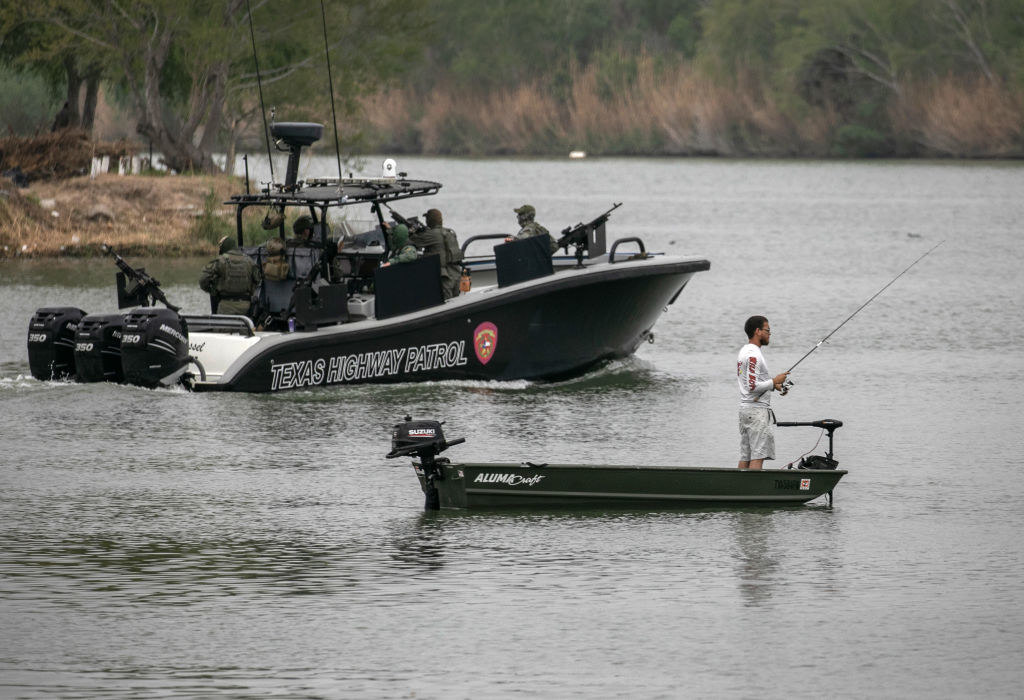
Immigrants who have their state charges dismissed are the ones who are being sent back to CBP and expelled under Title 42, said Maria Renteria, removal defense fellow for RAICES. But because this involves separate state and federal agencies, as well as different policies, there are no cut-and-dried rules, she said.
"What one organization will tell you happened to a client might not be the case for someone else, even if procedurally their cases are exactly the same," Renteria told BuzzFeed News.
It’s ironic, she added, that a program created by Texas to punish immigrants because it believes the federal government is being too lenient is actually helpful to some.
"I don't think [Operation Lone Star] is going to be an effective deterrent in the way they're envisioning it," Renteria said. "If family separation wasn't a deterrent … this is not going to stop them from taking their one shot that for many of them is the only way to have a future."
